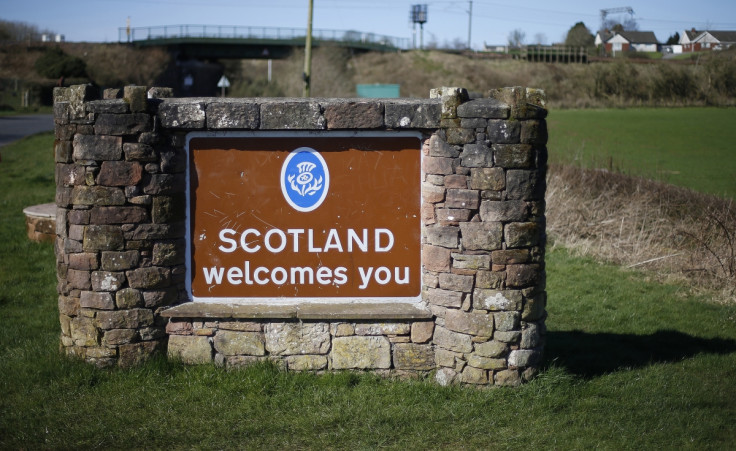Scottish Independence: Westminster Blind to 'Armageddon Scenario' if Scotland Votes Yes

It is being called the Armageddon scenario. What exactly will happen if all the polls and political certainties are turned on their heads and Scotland votes yes to independence on 18 September?
Ask virtually any senior political figure or official about the consequences of the unthinkable happening and they do the equivalent of sticking their fingers in their ears, whistling and shouting "I can't hear you".
Will the prime minister resign, will Ed Miliband be forced to follow? Will Hadrian's Wall be rebuilt? What will happen to all the Scottish MPs elected to Westminster the following May?
And so it goes on. There are dozens more questions like this which, officially at least, no one appears to be planning for.
Scottish MPs would be helping pass or block laws that would never apply to them but which might have a huge effect in the rest of what is left of the UK.
All the political attention has been focused on arguments over whether the Scots would be allowed to keep the pound or to join the EU, and highlighting the pros and cons of separation for the economy.
But it is the unanswered questions that, once considered, start to paint a nightmare picture of the realities that would engulf Westminster if Scotland does decide to go it alone.
For example, what happens to all the MPs elected to Scottish seats next May who would, in the event of a "yes" vote, no longer have the right to sit in a Westminster parliament 10 months later when Scotland makes the actual break from the UK?
The Scottish Nationalist Party simply say they would have to leave Westminster. But in the interim they would be helping pass or block laws that would never apply to them but which might have a huge effect in the rest of what is left of the UK.
Suggesting that Cameron would resign would mean offering the Tory-rejecting Scots a golden opportunity to vote "yes" and bring down an English, Conservative prime minister. The temptation would be just too great.
That has already led to questions over whether they should be banned from voting on some issues, or whether there should be a second general election or perhaps the 2015 election could be delayed until after independence actually happened. No chance of that last one.
And what about the future of the two main party leaders, who have jointly led the "Better Together" campaign.
The prime minister is reported to have said there is no way he will quit as a result of losing part of the UK, pointing to the cross-party nature of the vote "no" campaign.
But he has to say that. Suggesting at this stage that he would resign would mean offering the Tory-rejecting Scots a golden opportunity to vote "yes" and bring down an English, Conservative prime minister. The temptation would be just too great for many.
Finally they would get their revenge on the party which, under Margaret Thatcher, used them as a testbed for the disastrous poll tax in 1989.
And, in any case, it would not be up to Cameron to decide whether he stayed or went. His own party, the Conservative and Unionist Party let's not forget, would not be likely to forgive him for destroying the union.
But what about Ed Miliband, whose party is stronger in Scotland with 41 MPs compared to the Tories' one, and which has been in the forefront of the "Better Together" campaign under former Labour minister Alistair Darling.
He might feasibly be able to survive a "yes" vote but his party would see their hopes of a future Westminster election victory massively harmed, if not ended.
And, if Labour had won a small majority in 2015, it could be wiped out once Scottish Labour MPs were removed from the Westminster equation 10 months later. Chaos would ensue amid demands for another general election.
All this is only the start. If Scotland were allowed to join the EU it would almost certainly have to sign up to the Schengen agreement on open borders.
The UK is not signed up to that agreement and has retained passport controls at its borders. So, presumably, a border with passport booths will have to be created between England and Scotland or risk making a nonsense of the existing controls.
Some of these questions may seem extreme and, with goodwill on all sides, might be easily solved.
But that does not mean they will not provide a huge challenge to Westminster in the event of a "yes" vote, potentially knocking all other politics off the radar for months or more.
It must be the case that, while they are not going to admit it in public for fear of the consequences it might have on the campaign, political parties and Whitehall officials are drawing up contingency plans for the Armageddon scenario. Surely.
© Copyright IBTimes 2025. All rights reserved.






















